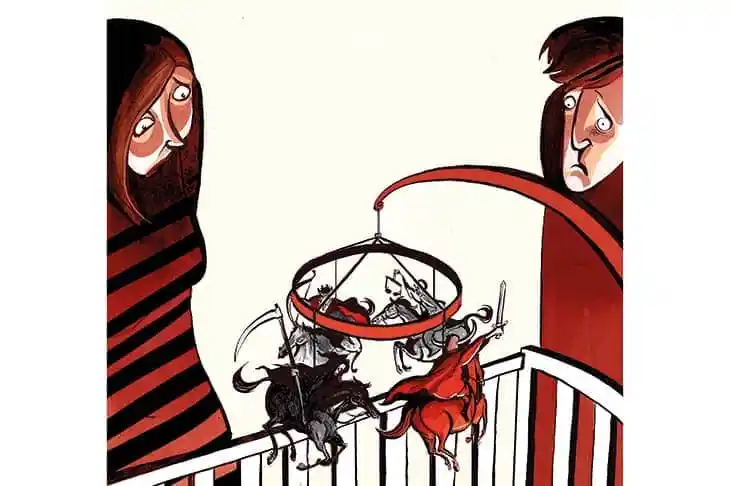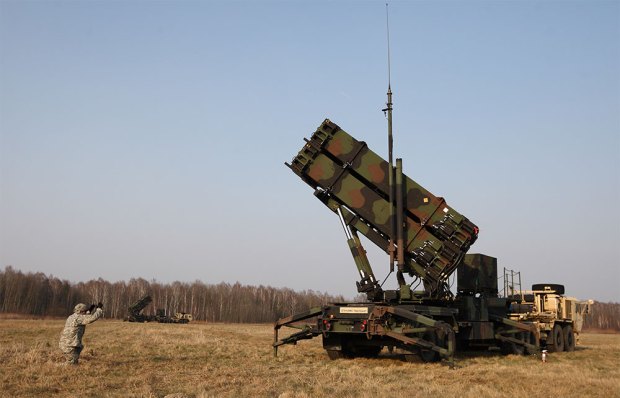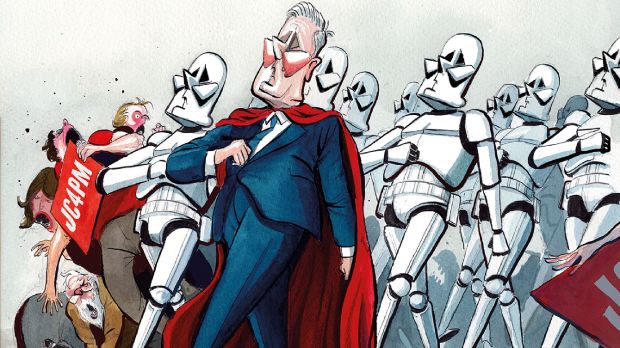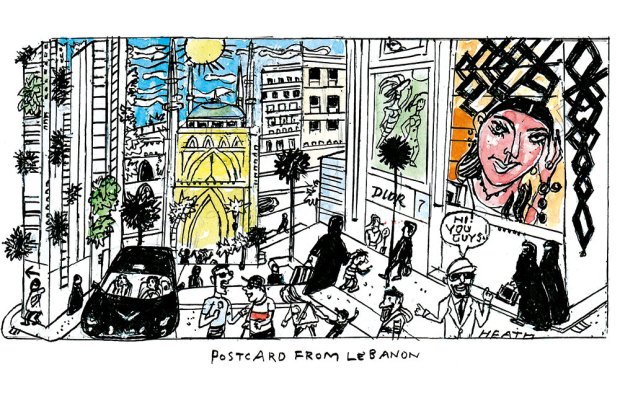Jim Skea has just taken on the most important job in climate science. As the new head of the United Nations’ Intergovernmental Panel on Climate Change (IPCC), he is now in charge of the organisation that has done more than any other to build the international consensus that climate change is an existential threat to humanity.
In the weeks since his appointment, however, the 69-year-old Scot, a former professor at Imperial and a founding member of the UK’s Committee on Climate Change, has set out to strike a very different tone by casting doubt on the apocalyptic claims of the environmentalist movement. His mission, it seems, is to be the still, small voice of scientific calm in a debate that usually tends towards hysteria.
When we meet in The Spectator’s offices, he’s wary of talking politics. Asked about Rishi Sunak’s decision to expand drilling for oil and gas in the North Sea, for instance, he replies: ‘I’m going to step back there with my IPCC hat on.’ Asked if more nuclear power is the only way Britain can realistically achieve its net-zero emissions targets, he demurs again: ‘That’s taking me into things that the IPCC wouldn’t touch on.’
He is, however, willing to distance his organisation from the increasingly fatalistic view that many young people have about humanity in relation to the environment. Polls show one in four young Brits is considering having fewer (or no) children in order to do less harm to the planet. ‘I’m about to become a grandfather in January,’ says Skea. ‘So clearly I think it’s sad that people might be making these decisions. I’m delighted the Skea line will continue.’
In general, polls show a rising proportion of young people reporting alarm and despondency about the planet’s future. ‘I can understand the anxiety, given a lot of the messaging that comes out,’ Skea says. ‘It has nothing to do with the IPCC. But I think a lot of the pleasures and the productive side of life would not change. You’ve still got family, you’ve still got friends. These are the things that provide support for people.’
While working on a recent IPCC report, Skea says that he was ‘very conscious that constant drip-drip anxiety messages could have a paralysing effect on climate action, because people just give up and say, “Well, the world’s going to hell anyway, so why bother about it?”’
He’s eager to stress, too, that for all its concern about environmental harms, the IPCC is hardly Luddite. ‘One of the messages we were keen to get across is that the human race has agency over its future,’ he says. The body’s scenarios show that, by 2100, the average person in the world will be five times as well off as they are today. ‘There are things we can do – we know there are options, there are technologies, there’s enough money in the world to address these problems. So we wanted to pick up much more of the solution message, which is not the same as saying we should be complacent about the risks. But we should be positive.’
Climate campaigners often use IPCC research to claim life on Earth will go over a tipping point if the average temperature goes 1.5°C above historical norms. Prof Skea says that figure ought not to be seen as a cliff-edge: ‘1.5°C is not an abrupt threshold where you move from one state of the world to another. The risks escalate gradually as the warming goes up. Suppose we reach 1.5°C – we would not transition into a new world. It’s an incremental change in risk… Every fraction of a degree makes a difference – the warmer it gets, the more risks that we expose ourselves to.’
At the same time, he’s not sanguine about the warming of oceans, the melting of Arctic sea ice, rising sea levels and the knock-on effects on global food production and low-lying countries. The world is, he says, still moving towards ‘very unknown territory… You are also looking – and this is moving more to the 2050 time period – at real risks for small islands and coastal areas. Sea-level rise will be such that it will make some places uninhabitable. They will disappear.’
In Britain, the political flashpoint at the moment is the expansion of low-emission zones planned in various cities. Keir Starmer, the Labour leader, has called for restraint and greater public consensus – but Sadiq Khan, the London Mayor, says too much is at stake to delay. Skea recently chaired the Just Transition Commission in Scotland, which looked at Dundee’s Ulez scheme, and he appears to prefer Starmer’s more moderate approach.
‘The key issue around that is it’s really important to keep people engaged with the process and not pass it top-down,’ he says. ‘We need to be conscious about the economic effects that any measures have on different groups within society, because we know that people on lower incomes tend to drive older cars that are going to be hit by low emission zones. Electric cars cost money that people on lower incomes can’t necessarily find the capital to pay. All of these issues need to be taken into consideration when you are developing policy, and explained and consulted all the way along.’
While reluctant to discuss party lines in relation to the North Sea, he does say that focusing on ‘energy security’ – as Sunak recently did – is short-termist. ‘It creates future issues. A future decision-maker might have to make a choice between leaving that oil in the ground and continuing to be compatible with the climate goals.’
At times, Skea can sound more radical than he intends. On the aggressive climate activism of Just Stop Oil, he hedges his position. ‘It’s like that thing – did the French Revolution work? It’s too early to tell,’ he says. ‘I frankly do not know whether that’s being productive at the moment. On the one hand it keeps climate change in the public eye, using people glued to the road or whatever. On the other hand, ordinary people are quite upset about disruption to their lives.’
A Lancet study found there are ten times more excess deaths due to the cold than the heat on the continent, but Skea abandons his studied neutrality when confronted with the argument that a warmer climate could have benefits. ‘That’s a very northern latitude perspective,’ he says. ‘It doesn’t cover the rest of the world… While it has been the case in the northern latitudes that there may be more deaths in winter because people are too cold, that isn’t necessarily the case in the future.’
As someone who is in charge of what he describes as ‘a gigantic brief’, however, he remains reassuringly analytical in his assessments. Does he consider climate change today the worst crisis that mankind faces? ‘It’s one of the biggest,’ he says, equivocally. ‘There are so many metrics for different types of crisis.’ Try telling that to Greta Thunberg.
Got something to add? Join the discussion and comment below.
Get 10 issues for just $10
Subscribe to The Spectator Australia today for the next 10 magazine issues, plus full online access, for just $10.
You might disagree with half of it, but you’ll enjoy reading all of it. Try your first month for free, then just $2 a week for the remainder of your first year.














Comments
Don't miss out
Join the conversation with other Spectator Australia readers. Subscribe to leave a comment.
SUBSCRIBEAlready a subscriber? Log in